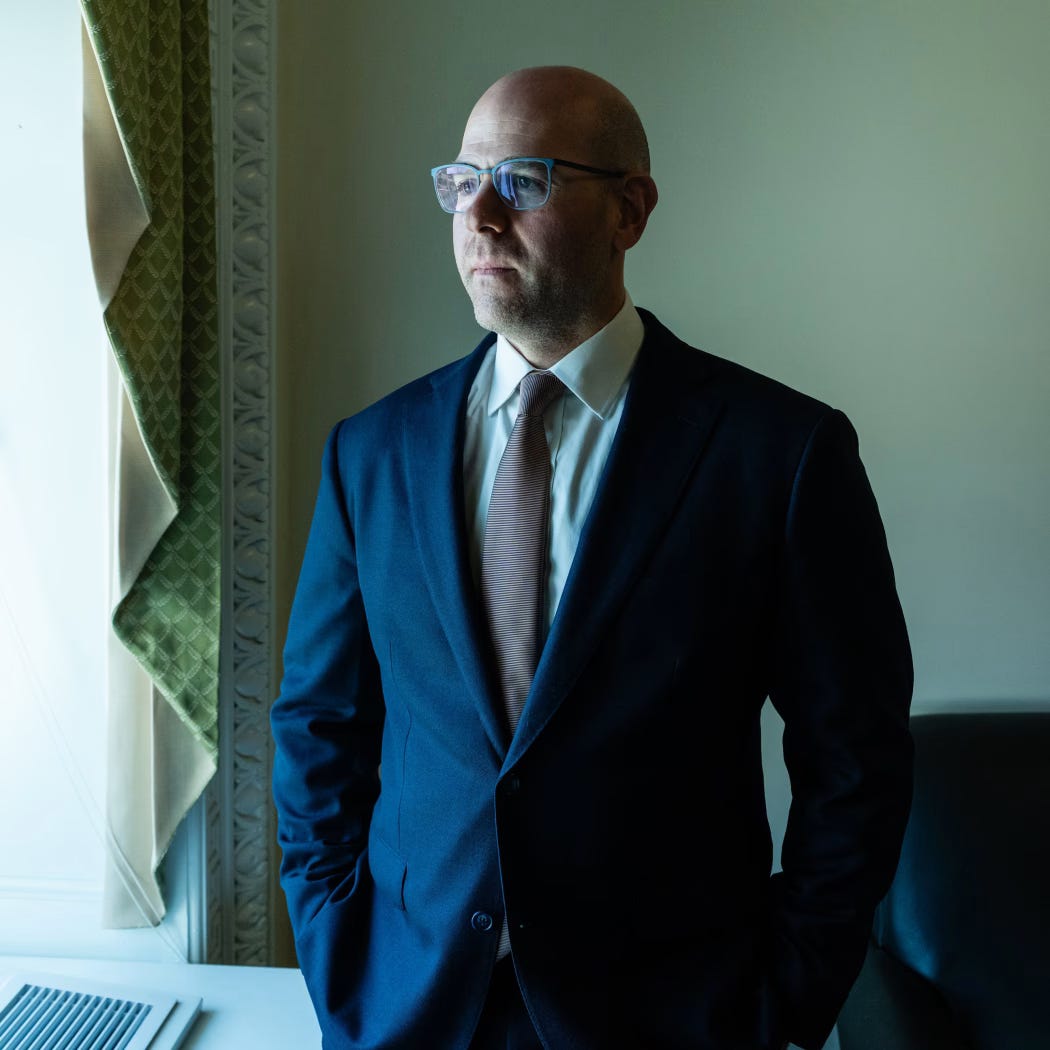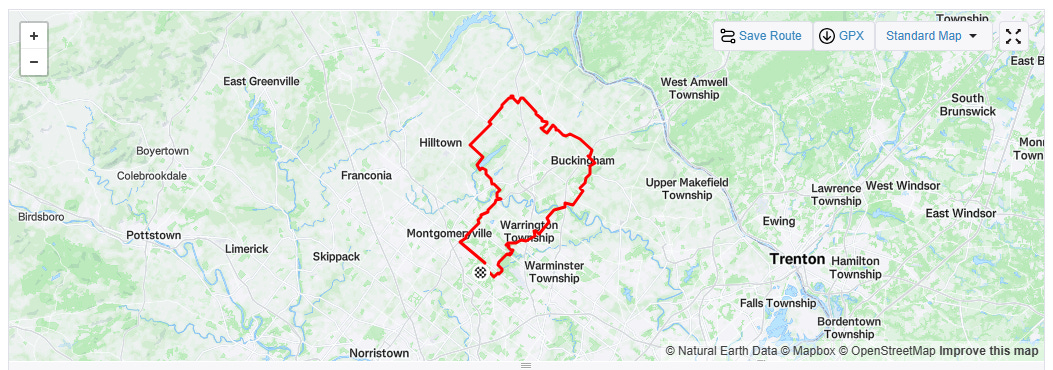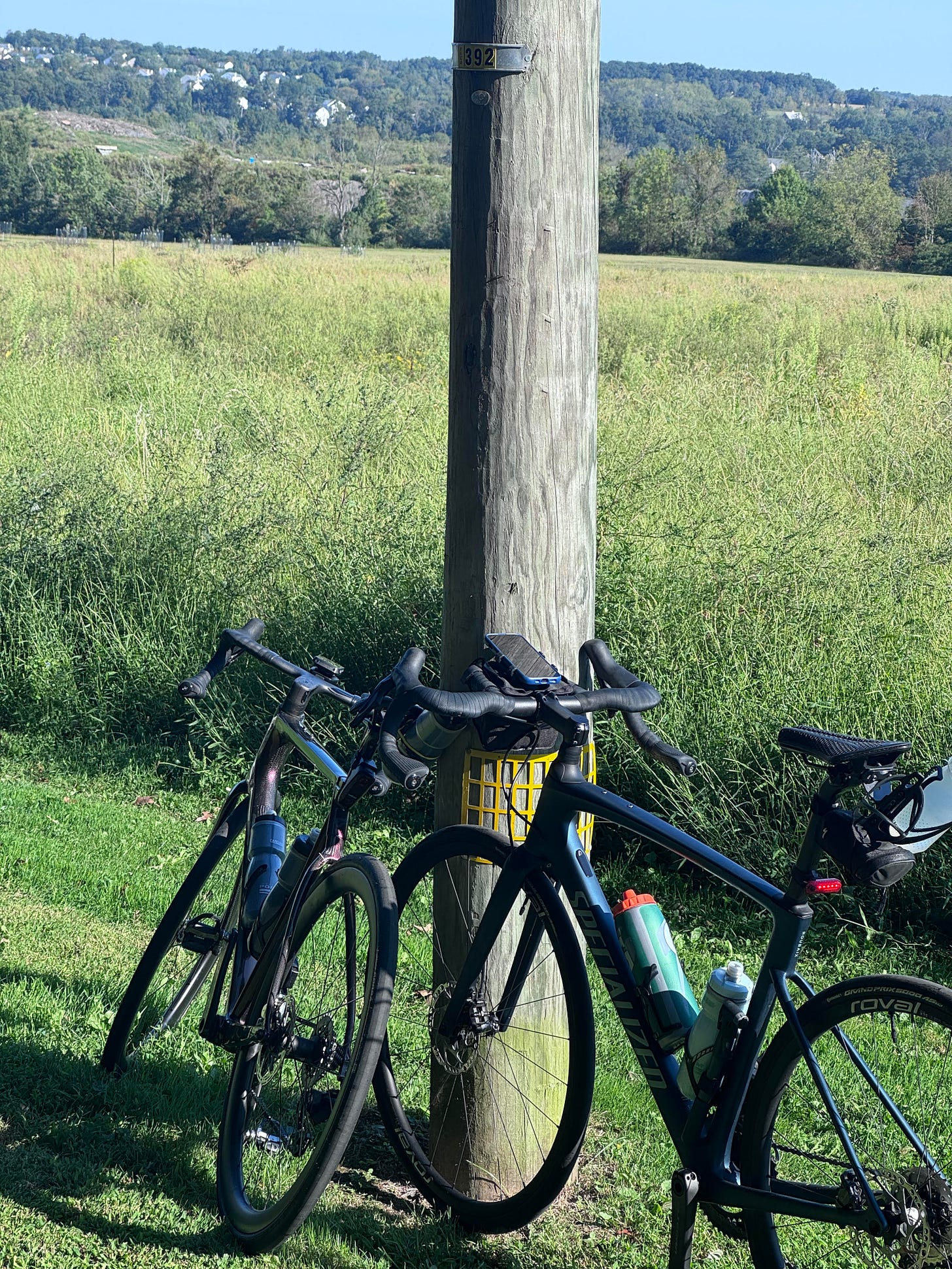It's going to be a fascinating and weird Fed meeting
Thoughts on turns in the Cook case, Miran's appointment, a symposium on my new book, Radiohead tickets, the ride of the week, and non-thoughts on Charlie Kirk
Stephen Miran, central banker (kinda) [Photo: WSJ, link below]
Exclusive: Fed Governor Cook declared her Atlanta property as “vacation home,” documents show, Chris Prentice and Marisa Taylor, Reuters, September 13, 2025
A great scoop from Reuters on the fully-manufactured crisis and smear against Lisa Cook, orchestrated by the Trump Administration.
There are so many things we could be and should be debating about Fed governance and Fed reform. Recently, for example, my friend and macro podcasting guru David Beckworth has had a series of conversations about the Fed’s (increasingly) limited power to move through monetary policy in a world where we may be entering fiscal dominance. Or you can take up the case with me of over a decade that the system of Fed governance is creaky and ill-suited to the needs of the day. Or you can wonder whether the Fed is wrapped too tightly in an opacity that makes it very difficult for us to assess what is in fact happening inside the world of bank supervision.
All of these are great debates and discussions that cut across partisan lines and do not start from the premise that the Fed is this noble institution incapable of error.
What we get instead is a probably illegal and probably false smear campaign against Lisa Cook for no other purpose than the stated one, to force the Fed into a posture of hyperinflationary and dramatic interest rates drops.
The entire affair is wrapped in ignominy. I am heartened that Cook has won her legal battles so far, with the only one that counts—at the Supreme Court—to come. I hope this assault on the very narrow question of Fed independence is over soon so that those of us who do not adhere to the institutionalized religions of Fed worship on the one hand or Fed condemnation on the other can go back to our work of trying to figure out what this complex world of central banking must be in this period of dramatic uncertainty.
How Trump’s Provocative Economist Crashed the Federal Reserve, Sam Goldfarb and Matt Grossman, Wall Street Journal, September 15, 2025
Putting aside the smear campaign against Lisa Cook, I have almost no confidence that the Administration will succeed at meaningful Fed reform, in part because of the confirmation of Stephen Miran as a (brief) Fed governor. I gave my limp support for this nomination when it was announced; the fact that Miran refused to resign from his White House job strikes me as disqualifying.
I am also struck by how much Miran argues and reasons like a lawyer rather than a central banker. I have listened to many of his interviews these past months and am struck by an almost total inability to see nuance or texture in the complexity of the macroeconomy. Everything is perceived through a lens of whether President Trump is Delphic in his economic policies or not. There is no possibility of adverse outcomes to his push for dramatically lower interest rates, to this messy and unreasoned trade war, to the overuse of tariff policy. It is the opposite of the anti-Trump critique, where there is no possibility that any economic policy coming out of the White House could possibly be right.
It’s not a very talented lawyer who reasons this way. It is an abysmal central banker. My hopes for Miran, not high to begin with, are about as low as they can be. I hope, for the country’s sake, he proves me wrong.
Whatever else Miran and Cook’s presence at the Fed means, this week is going to be a fascinating and weird FOMC meeting.
Symposium on Peter Conti-Brown & Sean Vanatta’s “Private Finance, Public Power: A History of Bank Supervision in America,” Yale Journal on Regulation Notice & Comment, September 10, 2025
There are so many parts of being a full-time scholar that I love. I don’t know if there’s one I love more than when smart people with deep subject-matter expertise engage with my work in provocative and interesting ways.
This week and next, my co-author Sean Vanatta and I are the recipients of this kind of engagement. The Yale Journal on Regulation is hosting an online symposium on our new book, Private Finance, Public Power: A History of Bank Supervision in America. The essays so far are so good and so interesting, pulling us into debates in the present day that our book—which ends in 1980—doesn’t address in name but does in concept. My profound thanks to Brian Feinstein and the editors at Yale JREG for organizing it and for the many great scholars who are participating in the symposium. Follow that space: Sean and I have the last word, which will probably be published this week or next.
Radiohead 2025 Tour: Fans Have Thoughts About the Band’s Exclusive Ticketing Approach, Vice, September 11, 2025
Radiohead announced recently that they were having fun in a studio playing the old songs and that it was time to tour again. But, in their usual idiosyncratic way, they would only tour in certain cities, with tickets only available in their own way.
The “thoughts” linked above are not positive from those fans who missed out. That was almost me. When I saw the news, I immediately entered the lottery to get a code that might allow me to get in line for ONE city and ONE date and only if I could buy fast enough, while supplies last.
Then I won the lottery. I got the code. So it was that at 4am EDT last Friday, instead of getting ready for a bike ride, I sat first at my computer (which promptly crashed) and then at my phone waiting unblinking for the news that I had secured a ticket. It refreshed every 20 agonizing seconds over 90 miserable minutes. That was longer than it took to deliver our first child and, dare I say it, more stressful? (I will pay for this comparison later, I feel quite sure.)
It almost didn’t work. A friend, another code winner, was doing the same thing across the ocean and kept finding it crash and kept texting and I kept ignoring it in grave fear that any ripple in my universe or iOS would cause me to crash too. When I was finally admitted to Radiohead’s digital temple, I could see the quantities of tickets plummeting in real time. I have never moved through online checkout so quickly.
It’s a good thing I have been training endurance, is my point. I was like a fighter pilot refueling midair with my steady hand and heart rate. And now, with four tickets, my older boys and big sister—the OG Radiohead fan who helped convince me in the early 2000s that there was more to that band than “Creep”—and I are headed to Berlin to watch the boys from Oxford do their beautiful thing.
Ride of the week: Montgomery and Bucks County, 48 miles, 142w, 133 bpm, 14.6 mph
I love Bucks County for cycling. The roads are incredible, with low traffic and wide shoulders. There is a huge trail network. And fall riding is so legendarily good in Pennsylvania that I only despair to think that temperatures are dropping.
Last week, my triathlon buddy Jared and I went on his longest ride, a 50-miler. It was such fun. What is astonishing to me is how much my heart rate continues to drop as I get fitter. I mostly train in zone 2 on the bike, but tomorrow I am going to wake up early and attempt a 112-mile ride, my longest yet, all through Bucks County, courtesy of my other main biking buddy, Dave (whose encyclopedic knowledge of cycling routes in our area is mind boggling). I’ll post next week about the ride, but my goal is to keep it up at race pace, around 150 bpm, for about 6-7 hours.
It also reminds me how much I love sharing cycling with friends. What a pleasure it is to ride hard or ride easy with people I love as we move fast through this beautiful countryside. I can’t get enough of it.
My non-thoughts on Charlie Kirk
I’m going to conclude with some non-thoughts about Charlie Kirk. As with most things touching Kirk, this is likely to be controversial. I am not in his world, either in support or critique. I had heard of him, barely, before his death and had never listened to his TikToks, etc. Almost all I know about him I have learned since last week.
What thoughts I have about him and his approach and his movement are so amateurish and ill-informed that they are not worth sharing with anyone except the closest of friends, in the most underbaked contexts. This sense reflects my view of radical uncertainty: there are just too many facts and phenomena in the world for any one of us to make meaning out of them. I cannot and will not have an informed opinion simply because the news is hot and the attention is hotter.
That is a minority view. It fills me with dread how much people everywhere feel inescapably drawn to this drama, with a burning need to announce their views, their tribes, their supports, their condemnations. Nothing good can come from this compulsive, animalistic, tribalistic impulse to feel sure about the meaning of tragic events far removed from your actual lived experience.
It reminds me of that brief time during the pandemic that everyone watched The Great British Baking Show and had so many opinions about Paul Hollywood and Mary Berry and those two hosts whose names I now forget. Suddenly non-bakers everywhere had strong views on whether bread is underproved or whether you should use floral extracts in desserts. I know in part because I was one of them. It was reality TV and we all had strong views that simply had to be shared.
What we understood about GBBS, though, was that this reality TV was entertainment, that the stakes could be interpreted in this way, that we could reason with others in their passions and be provoked, happily, in discord. It was reality TV, but it wasn’t real life. Few people misunderstood that distinction (although I met some people whose rigid views on Paul’s icy stares still shake me.)
I think of American politics by and large as a kind of dystopian reality TV that serves only to enrage and engage. The stakes are higher than the Great British Baking Show, I get it. But so much of our participation in that saga is functionally identical.
I’m not sure what the best equilibrium of citizen engagement is when it comes to news events like Kirk’s death. It’s not zero. I am not a democratic nihilist. We can have informed views on the news of the day, at least in part.
I feel sure, though, that if we are at an equilibrium, it is a devastating one. The number of people who can have or should have informed opinions on Kirk the man, Kirk the movement, Kirk the ideology, is so much smaller than the number of people who feel poisoned and provoked by the events of the last week.
That disjunction leads to my wish for myself, for the Conti-Browns, for my students, for my co-religionists. That stress and hostility you feel in favor or against Charlie Kirk or his supporters or opponents is at best a verisimilitude of life. It is possible to turn the TV off, step out of the artificial light, and, blinking and bewildered, move out of the pale glow of your phones and social media feed to live a life that is closer to what makes life so vivid and essential.
Stepping away from the rage and bait is not a capitulation to your enemies or a betrayal of your friends. Indeed, in the tragic irony of our day, the opposite is true: not only does our enragement and engagement threaten our friends and reward our enemies, it may be the very thing that destroys us all.





Love the non-thought thought. I have the same thought about so much of the news and people's opinions of it.
Nice summary here of the latest with Cook and Miran. Got a lot of your latest podciast with David Beckworth recently that touched on so many specific and important legal issues. I still feel like I am in some kind of alternative universe - or maybe through the looking glass - in the midst of all this.